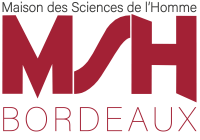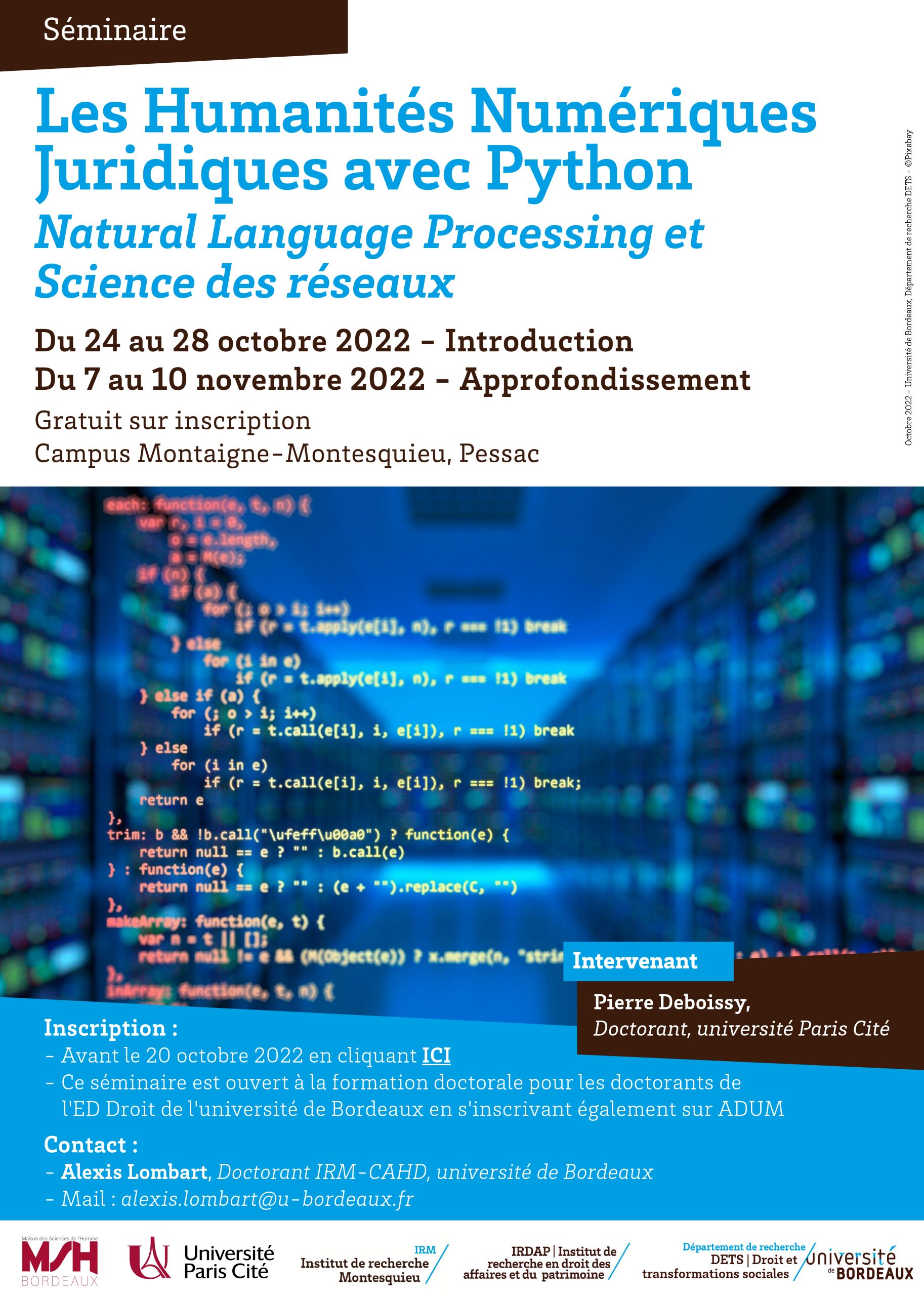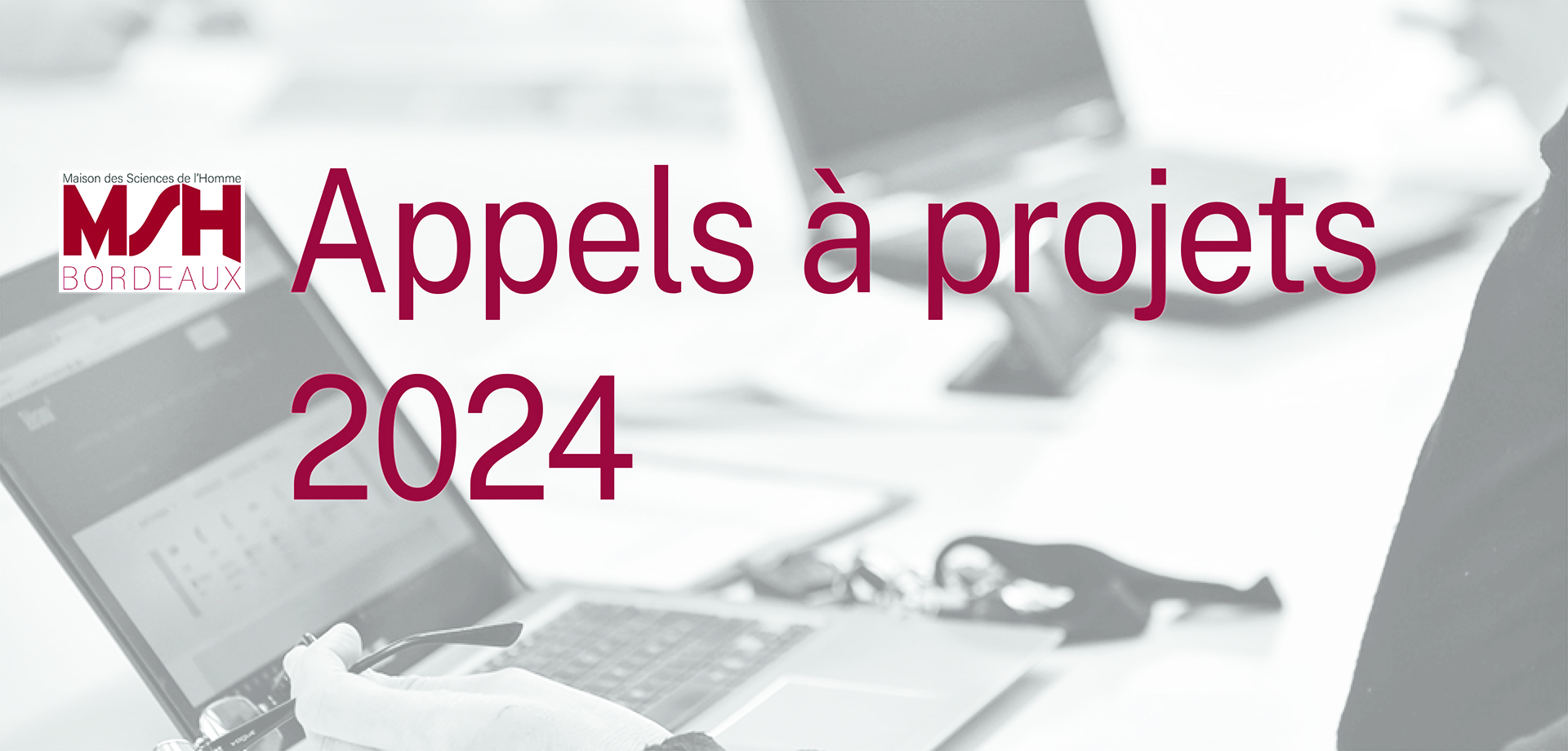From October 24 to 28, 2022 – Introduction: “Introduction to legal analytics using Python and NLTK”
MSH Bordeaux and University of Bordeaux – Manon Cormier Room
Download the program (pdf)
From November 7 to 10, 2022 – In-depth study: “The legal concept of nature in the Caselaw Access Project (CAP)”
MSH Bordeaux and University of Bordeaux – Salle des Actes
Download the program (pdf)
Both courses can be taken independently of each other, although it is preferable to attend both.
They are open to everyone, tenured researchers, young researchers and doctoral students. Due to a limited number of places – necessary for the quality of the training – registrations will be processed in order of arrival.
Training in legal IT, constituting an introduction to computer programming applied to legal databases , which allows you to take full advantage of the latter.
These seminars are part of the broader disciplinary field of Digital Humanities (or Digital Humanities ), which constitutes an emerging auxiliary discipline in the field of SHS.
They complete and extend the study day of June 22, entitled Taking advantage of digital humanities in law and political science and are part of the BorHN (Bordeaux Digital Humanities) – AAP MSH Bordeaux 2022 project, which aims to promote inter-unit and inter-establishment cooperation in digital humanities.
In addition to the fact that mastery of these tools offers great freedom and opens up numerous possibilities for exploration from a scientific point of view (to extract, represent and analyze data), they also constitute an element of professionalization, both academic and extra-academic.
The training thus makes it possible to consider the study of large textual corpora or the creation of visual representations of the data analyzed.
These seminars offer numerous added values, one of the main of which is that they have been specially designed to meet the needs of lawyers, but also, more broadly, those of any researcher wishing to carry out studies of textual corpora.
This training is therefore also open to non-lawyers wishing to discover the basics of automated analysis of natural language ( Natural language processing ), as well as network studies (network science), which constitute two major sources of corpus studies in the means of digital humanities.
Above all, these two training courses are focused on producing concrete results, in a fairly short time interval – each seminar lasting one week – and do not require any prior knowledge of IT.
Finally, it must be emphasized that the computer science concepts presented in these seminars do not require any knowledge of mathematics.
The skills acquired are completely identical for analyzing decisions in French.
For convenience, the corpora studied come from a database of American court decisions, particularly well designed, open access, and produced by Harvard University and LexisNexis: the Caselaw Access Project .
Contact: Alexis Lombart , IRM-CAHD PhD student, University of Bordeaux
Call for papers international conference
Projects supported by MSH Bordeaux as part of its AAP 2024




